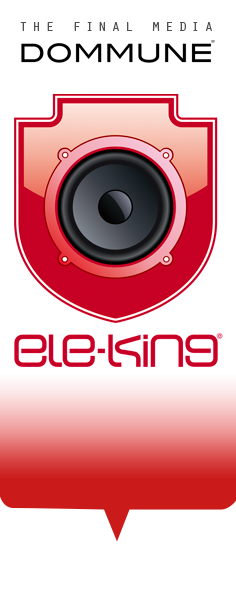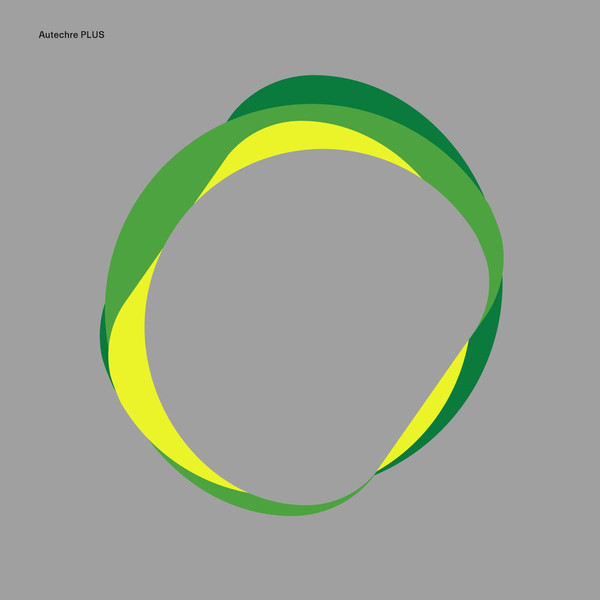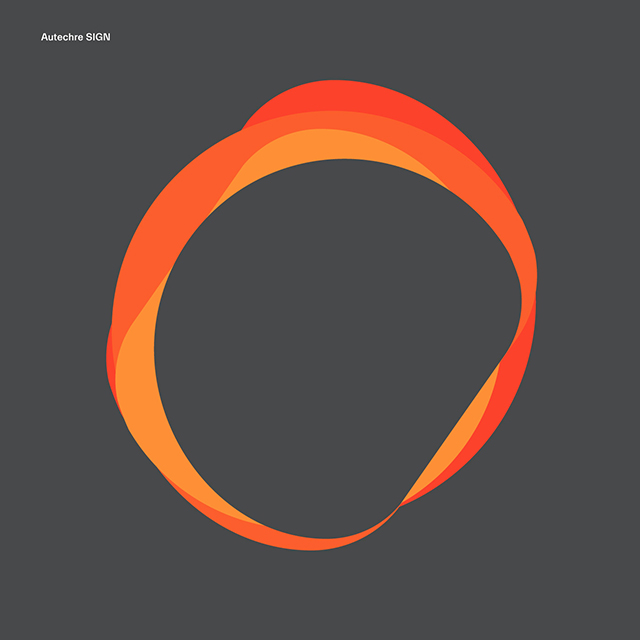MOST READ
- Columns 4月のジャズ Jazz in April 2024
- Li Yilei - NONAGE / 垂髫 | リー・イーレイ
- interview with Lias Saoudi(Fat White Family) ロックンロールにもはや文化的な生命力はない。中流階級のガキが繰り広げる仮装大会だ。 | リアス・サウディ(ファット・ホワイト・ファミリー)、インタヴュー
- interview with Keiji Haino 灰野敬二 インタヴュー抜粋シリーズ 第2回
- interview with Larry Heard 社会にはつねに問題がある、だから私は音楽に美を吹き込む | ラリー・ハード、来日直前インタヴュー
- The Jesus And Mary Chain - Glasgow Eyes | ジーザス・アンド・メリー・チェイン
- interview with Martin Terefe (London Brew) 『ビッチェズ・ブリュー』50周年を祝福するセッション | シャバカ・ハッチングス、ヌバイア・ガルシアら12名による白熱の再解釈
- Columns ♯5:いまブルース・スプリングスティーンを聴く
- claire rousay ──近年のアンビエントにおける注目株のひとり、クレア・ラウジーの新作は〈スリル・ジョッキー〉から
- interview with Shabaka シャバカ・ハッチングス、フルートと尺八に活路を開く
- tofubeats ──ハウスに振り切ったEP「NOBODY」がリリース
- Beyoncé - Cowboy Carter | ビヨンセ
- 『成功したオタク』 -
- Politics なぜブラック・ライヴズ・マターを批判するのか?
- Larry Heard ——シカゴ・ディープ・ハウスの伝説、ラリー・ハード13年ぶりに来日
- 壊れかけのテープレコーダーズ - 楽園から遠く離れて | HALF-BROKEN TAPERECORDS
- interview with Keiji Haino 灰野敬二 インタヴュー抜粋シリーズ 第1回 | 「エレクトリック・ピュアランドと水谷孝」そして「ダムハウス」について
- Free Soul ──コンピ・シリーズ30周年を記念し30種類のTシャツが発売
- interview with Fat White Family 彼らはインディ・ロックの救世主か? | ファット・ホワイト・ファミリー、インタヴュー
- Royel Otis - Pratts & Pain | ロイエル・オーティス
Home > Interviews > interview with Autechre - 音楽とともにオーディエンスも進化する
1994年、ぼくたちが初めてアメリカに行ったとき、取材でどんな音楽に影響を受けてきたか訊かれた。「エレクトロやハウス」と答えたら、ジャーナリストたちは理解してくれなかった。彼らにとって、それらはどうでもいい音楽だったからね。
■次の質問です。『Exai』というCD2枚組のアルバムを2013年にだして、その後CD5枚組の『elseq 1-5』を自分たちのサイトから出していて、今回の『NTS Sessions』 はCDなら8枚組ということで、なんだかどんどん作品の尺が長くなっています。それは自分たちが表現したいこと、作品に出したいことが1枚のCDではおさまりきらなくなっているということでしょうか?
ショーン:あれは偶然の産物なんだ。2年前頃、NTSでたんなるミックスだけれどDJをした。そうしたら、次は(8時間の)レジデンシーをやらないかと。普通のラジオのDJのようなものをね。8時間、DJをする時間はなかったし、やりたいとは思わなかった。でも、自分たちのマテリアルでなら面白いものが8時間できるだろうと考えた。だからそうしたんだ。8時間のDJをやらないかって言われたからこそ、発展したというか。
Sean:NTS thing happened by accident. About two years ago, we did a dj set for NTS. It was just a mix, you know. And they came back and said if we would do a residency. And the first this was just a regular radio dj thing they were asking us. But I didn’t want to do it, I didn’t have enough time to do 8 hours to dj mixes, you know. But we sat and thought about it, and we realized we could make 8 hours of material - because, that would be more interesting. So we did that. So it just happened just because they asked us....They asked us 8hrs of mixes and...
ロブ:2時間のセッションを4回ね。彼ら(NTS)のレジデンシーが、そういう仕組みなんだ。
Rob:Four two-hour sessions. Four two-hour shows in the most. It was their idea to stage this residency, because that’s how they work with the residency…
ショーン:時間はかかったよ。これをやるには時間がかかるけど、できるだろうか? ああ、できるよって(話し合って)取り組んだ。
Sean:So it took a while - I thought ok if we do this, it would be a long thing. It requires a lot of time, but we can do it. It’s one of these... “Can we do this? yeah, we can do it.” And we tried. I think we did it.
ロブ:NTSのレジデンシーだったら、DJをするのだろうと思うだろ? 今までも新しいアルバムを出す度にそうしてきていたしね。プロモーションの一環として、ラジオ番組で大きいプログラムを組んで、影響を受けたアーティストの曲をかけたりしてきた。自分達の曲ではなくてね。ぼくたちがラジオでオウテカの曲をかけるとは、誰も思っていなかったんだ。だから、あれ? この曲は? まさかオウテカじゃないよねって。でも、2時間もしたら、当然わかるよね。次のセッションまでの1週間、皆が興味深々でいてくれたのがわかったよ。
Rob::What makes it more special is that, if we did a residency like that for NTS’ invitation, you’d expect us to be djing for the people’s music. Like we had every time we put cd of our music. We would prep us a big radio show, playing influences, play tracks that are never ours. Hardly ever played our own tracks. So suddenly the idea that.. the radio show, what you will hear is still secret. You know with an album, it’s gonna be an Autechre album, but with a radio show, a lot of people might expect others’ music, so it was that really the nice thing that the revelation that.. “I have not heard this tune before, they are playing some new record of somebody.. Is this Autechre? Oh...” And after two hours, it’s very obvious it’s Autechre and it was another week to wait. Will this be… They are not doing Autechre, they are playing somebody else’s. And that lasted almost a week. (We knew in an advance, it was saying we were talking about ideas - you could expect this constant reawakening of the people, the interests?)
ショーン:ワープと契約する前の、1990~1991年頃、マンチェスターで3~4年、パイレート・ラジオをやっていたんだ。他のアーティストのレコードをかけていたけど、ときどき自分たちの曲も滑り込ませた。
Sean:Before we signed to Warp, in 1990, 1991, we played on a pirate radio station in Manchester. We did this for three years, four years. We would play other people’s record, but every now and then, we’d slip in our own track of ours.
ロブ:デモをね。
Rob: A demo.
ショーン:かけてみて、それに気づく人がいるか試していた。それに近い精神というか、何をやらかすかわらない遊び心というか。
Sean:Just play.. you know, see if anybody notices. And it was a little bit in that spirit, where the audience would not know what we would do, so we could play around..
ロブ:予測できないこと何かをね。
Rob: It’s unpredictable
ショーン:ぼくたちが新しいオウテカの曲を8時間もかけるなんて、誰も思わないだろうと考えたんだ。だって、馬鹿げているだろ。だからやったんだ(笑)。
Sean:Yeah so we thought nobody would expect us to play 8 hours of new Autechre. It was kind of absurd, you know, ridiculous. But.. so we did that.
ロブ:ぼくたちがラジオのブロードキャスティングのことをよく理解しているということ、それがショーンが言っていることの本質だよ。ラジオを聴くという行為、皆が一体になって聴いている瞬間というのかな、ある瞬間に、この曲誰だろうって思っている人は君ひとりじゃない。皆をシンクロさせるんだ。ライヴ・ストリームだったから世界のどこかで君と一緒に聴いている人がいたんだよ。深夜2時頃にやるのがぼくたちの定番だけどね、昼間じゃくて。夜、心に響く音楽だと思うんだ。世界のどこかでは、深夜のベストの時間帯になるから、(ストリーミングを)何時にやってもいいのかもしれないね。さざ波のように広がるのが面白かったよ。ある場所では夜中で、別の場所では仕事から帰ってきたばかりの時間。でも、少しはお互いにシンクロし合うんだ。皆がライヴ・チャットしていたのを見ていたよ。「いま帰ってきてばかりだけど、聴き入ってるよ!」とか「いま東京! 東京で聴いてる!」とかね。そうやって感情が反映されて広がっていくんだ。
Rob:It’s the nature of Sean talking about how we are very familiar with radio broadcasting, the idea of how people are actually listening together, is a combined moment where everyone knows, even if they don’t know - “who is that?” - then at least there is one more person is like that. Doing what they are doing. And.. Because it synchronizes everyone. What was quick with this was, they streamed this live, normally we would play it 2AM or it’s better earlier in the evening, not in the mid afternoon, but you knew this somewhere around the world, there are somebody (?) that, in that ideal window. At night time, that kind of music works a little better. And it meant that the radio show could be played almost (?) time of the day, because somewhere globally the stream is arriving at the ideal time for someone… They are kind of this funny ripply effect of people being accepting it later night and some people are like “no i’m just coming home from work, it’s not my ideal time” but they would synchronize each other a little bit. You could see people chatting live and say “I’m just coming home and suddenly immersed in this thing”. And some other people are like “I’m in Tokyo listening to this, oh man!” and you spread to reflect the feeling ..
ショーン:捉え方としては、ラジオ番組のプログラムと一緒なんだ。リリースはラジオをドキュメントしたものなんだ。だからタイトルがある。『NTS Session』と。
Sean:It’s conceived as programmed as the radio show. It’s very much… the release is a document of a radio show, which is why it has a title. NTS session because...
ロブ:アーカイブだね。
Rob: It’s an archival.
ショーン:そう、ラジオのアーカイブ・リリースだよ。
Sean:Yeah, it’s an archival release of a radio show. Yeah, it’s a...I guess that is what it is.
■これはいつ放送されたものですか?
ショーン:4月だよ。やったばかり。
Sean:April. It’s very fresh, yeah.
ロブ:4月に4回、毎週木曜日だった。
Rob:It was every week , four Thursdays in April.
ショーン:前もって用意した作品だよ。スタジオでやった長いセッションを元にしているんだ。ピール・セッションを作った時のプロセスと同じようなやり方なんだ。
Sean:And it was prepared in an advance. But it was made.. originally from the long live sessions in the studio. It was a similar process to how we made the Peel Sessions. It was a very similar process to this.
■4つのセッションはそれぞれテーマが決められているように感じました。セッション1はダンス・ミュージック、エレクトロ的なオウテカのルーツを感じるようなセッションで、セッション2は近年の『Exai』や『Oversteps』などすごくエクスペリメンタルで複雑なことをやっていた近年のオウテカというものがすごく出ているように感じました。セッション3は今までやっていなかったことをやろうとしているのかなという印象を受けて、セッション4はアンビエントやドローンなど聴いたことがないオウテカという印象を持ちました。それぞれのセッションはどのように作り分けているのですか?
ショーン:興味深い。
Sean:It’s interesting...
ロブ:ペース間隔が大切だったんだ。ラジオ・ステーションがベースになる作品であることはわかっていた。
Rob:They have to be paced, and we knew the pace had to work in a... we knew the records were gonna come out as well as the radio station was gonna be its basis.
ショーン:部分的には……、頭のなかのどこかで、経験として8時間の音が成り立っていたから。
Sean:It’s partly... as well, somewhere in the back of my mind, I had kind of 8-hour experience..
ロブ:頭のなかで。
Rob: In mind.
ショーン:そう、だから、全体的な流れがある。8時間通しで聴くことは、誰にも期待していないよ、でも可能にしたかった。(音の)旅だと思う。大まかなナレティヴもあると思う。そうだね、最初は直球にしたかった、ある意味、入って行きやすいもの。2番目は、ディープにしたかった。2番目のセッションは、ブシュシューと深いところに沈み込むような感じだ。そして3番目は、2番目の展開。4番目はディープな未来。なんて表現すればいいのかな、アイディアとして、深い深い未来、物事がありすぎるようで少なすぎるような……。
Sean:Yeah. So there is an overall flow. I don’t expect many people would listen to 8 hours all while they are sitting but I want it to be possible. And it’s kind of a journey. There is kind of a rough narrative...And yeah, it’s true, in the beginning I wanted it to be more straight forward.. Not necessarily... I guess “accessible” to a certain extent, and the second one, I want it to be deep. The session two was kind of a deep plunge, almost like an “boonpfft.... “, you know. And then three is a kind of like a development of two. Four is kind of a deep future. I don’t know how to describe it, kind of...idea is a deep deep future where it almost you can’t ... there is almost too much and too little at the same time..
ロブ:ぼくは個別に捉えている。1番目は……狭いところから始まり、だんだん広がっていく。アルバムにはイントロがよくあるように。2番目はもう少しわかりやすくて(入っていきやすい)、皆がどこまで遠くまで行けるか探っている。3番目は、とてつもなく広く、何でも起こり得るような場所。4番目は、ショーンが言ったように、ガスなのかアトミック・レベルなのかわからないけど、互いにコズミックな関係性のあるものが沈みこむような……引力と重力のある……
Rob: I see it individually in a way...the first one... it starts out narrow and widens out and widens out, and second one, yeah slightly more accessible for a reason, because some albums were with an introduction, yeah? And then, second one, exploring how far people can go. Third, you got so much width now, almost anything is possible. The fourth one, like Sean said, you don’t know what they are doing with the gas, or atomic level stuff or, and just as important, cosmic with one another. There is gravity and heaviness ..
■セッション4最後の1時間近くあるトラック、“all end”のことですが、このような長尺のドローンはいままでなかったと思のですが……
ショーン:長いトラックを作ったことは前にもあった。ドローンのようなものも、「Quaristice.Quadrange.ep.ae」(2008年)というね、『Quaristice』の頃だよ。
Sean:Yeah, we’ve done long tracks before. We’ve done drone tracks.. We did the thing called Quadrange, around the time of Quaristice.
ロブ:レコード4枚分、ダウンロードのみのリリースでね。
Rob: It was a range of four records. Download only.
ショーン:『Quaristice』の頃のデジタル・リリースで、1時間あるトラックだった。だから、初めてじゃない。ドローンとは呼びたくないけど、こういったトラックはずっと作っていた。ドローンじゃないんだ、別物だよ、でも、まあ長い間、こういうものは作ってきていたんだ。
Sean:It was a digital release around the time of Quaristice, and was an hour long track. So it wasn't the first time, but it was very limited.We’ve been making this kind of tracks...I don’t want to call it drone.. It’s not really drone, it’s something else, but we have been doing this kind of stuff for a while.
ロブ:その曲は世界のようなものなんだ。複雑な……。文明のある天体球で、そのなかを覗くとひとつの完全な世界がある。あって欲しいと望んでいる。
Rob: It’s like they are worlds.. it’s complicated.. it’s a civilized sphere, but if you look inside it, there is a whole world.. I mean there is, hopefully.
ショーン:その表現はすごくいい。
Sean:That’s a really good way to say it.
ロブ:こうとしか言い表せないな。
Rob: I don't’ know what else to say it..
ショーン:こういうのはしばらくやってきていたよ。でも、ワープに(1曲で)1時間もあるアルバムを持っていったら、何考えているんだ? って言われるよ。でも、8時間分のリリースなら、そのなかに1曲、1時間のトラックがあってもOKだろ。
Sean:We’ve been doing this for a while.. but if we go to Warp with an hour long album, they’d be like “What?”. In an 8-hour release, it’s ok to have a track that’s an hour long.
ロブ:昔、パイレート・ラジオだけじゃなく、キス・マンシェスターでもやっていたんだ。毎週ね。ディスエンゲージドという番組で、キス(ラジオ)でやっていた。FM局のキスは、イギリス全国にあるサテライトステーションだから、ぼくたちもブライトンでやったり、ロンドンでやったりしたけど、マンシェスターではレジデントみたいな感じで何年もやっていた。毎週日曜、真夜中の番組。友だちを呼んで、GescomとかAndy Waddocks, Skam, Rob Hall, Darrell Fittonとか、皆でやったんだ。みんな、変わったものを持ってくるんだよ。それに近いフィーリングだよ、ラジオでいろいろなものを聴く(かける)というものに。
Rob:We used to do, not just a pirate radio, we did a legitimate radio on Kiss Manchester. Every week… It was called Disengaged, on Kiss Radio. Kiss FM spread out as Satellite stations in UK, so sometimes we’d be in Brighten, London, and then we had almost like a resident in Manchester, for years. We had friends involved, Gescom gang, we did a lot of Disengaged in Manchester, because they came regularly every Sunday. And it was really late at night. So we did a lot of late night radio. Gescom, Andy Waddocks, Skam, Rob Hall, Darrell Fitton, all contributed and we all did this together. But they (?) very weird wonderful kind of program material, so.. it’s similar to that kind of the feel that things could be… it’s radio so we could explore lots of different things.
Spotifyはクズだよ! なんでかって? アクティヴィティー・プレイリストなんてものがある、リラクゼーション・プレイリストとか? 最悪だよ。音楽を滅ぼしてしまっている。最低さ。ストリーミング・サービスは、ゆっくりと音楽を破壊の道へ導いている。
■『NTS Sessions』のすべての曲にちゃんと曲名がありますよね。その1時間の曲は“all end”という曲で、曲名に意味を持たせようとしないオウテカにしては意味を感じる曲名だなと思いました。
ショーン:うーん、ピンとくるタイトルはあるよね。これの場合は、最後の曲で尺の長い作品だし……。
Sean:I don’t know...sometimes titles just feels right. It was the end, and it was long and all..
ロブ:他のトラックでも、こんな感じのサウンドが聴けるものはあるんだ。でも、これは最後のトラックでこの独特の音の世界を追求したものだね。
Rob:There is a moment where you can hear this kind of sound in another track and it was an end of this track, and this is all but it, it is all that stuff, it’s all the end as well..
■ってことは、過去にやってきたことの集大成的な意味合いもあるんですか?
ロブ:ピール・セッションについて話すと良いのかな。ピール・セッションの場合は、──ジョン・ピールはUKのラジオDJで、もう亡くなっているんだけれど──、アーティストたちは、3、4曲、ジョン・ピールに曲を渡していたんだ。1~2曲の新しいトラックと、それらのオルタナティヴ・ヴァージョンのものをね。コクトー・ツインズやザ・フォールなど、皆、すでにあった曲のオルタナティヴ・ヴァージョンをピール・セッションとして提供した。よく知られたマテリアル、有名なトラックのものを。
Rob:I should say.. With Peel Sessions.. In the UK, we have.. he’s died, John Peel, was a radio DJ in UK, he is now dead. And.. what used to (?) with the Peel Session, so the artists would give him, say, four tracks, or whatever, three.. It’s traditional to give may be one or two new tracks, then some alternative versions of new material… Most of Peel Sessions back then .. Cocteau Twins, The Fall, all these different artists did the Peel Sessions, most track they did were alternative versions of existing material. Well known material - almost famous tracks, even.
ショーン:『NTS Sessions』を思いついたとき、オウテカのマテリアルを展開させた、オルタナティヴ・ヴァージョンを作りたいと考えたんだ。すでにあるトラックのエレメンツやパーツ、アイディアに言及するような作品を。そういったことはいままでにもやってきていたけれど、そのやり方で厳密に取り組んだのが『NTS Sessions』なんだ。
Sean:When we conceived this NTS Session, we wanted to make what we would do as developed alternative versions of existing Autechre material. So it’s kind of.. it refers to previous work of other tracks, elements, or parts, or ideas from previous work in the same way. Strictly for NTS Sessions, we kind of did that more. We always did that a bit, but with this we did that a lot.
ロブ:それは大きいね。
Rob:Real big parts of it.
ショーン:“all end”は、『Exai』の“Bladelores”というトラックに似ている。そして、最後のセッションだ。“all end”は、『Exai』の“Bladelores”のアイディアのいくつかを展開したもので、NTSのためのスペシャル・ヴァージョンと言えるよ。だから“Bladlores”の終章、終りということだね。
Sean:All End is similar to a track called Bladelores from Exai. And it was the end session. All End is an expansion of some ideas from a track on Exai. Bladelores. Kind of a special NTS version of that track. So the name is about, how it’s the end of Bladlores.
ロブ:終りのすべて、全部。
Rob:And it’s all of it.
■今回の『NTS Sessions』もそうですし、ひとつ前の『elseq 1?5』など、さらにその前にライヴ音源をいっきに自分たちのサイトでリリースするようになったと思いますが、さきほどの「インターネット」や「スマートなリスナー」を想定したリリースの仕方をしているのですか?
ショーン:ああ、インターネットを通して、オーディエンスとは直に繋がることができる。メディアは物事を簡略化しすぎるから。売るためにね。
Sean:Yeah, with the Internet, we can just go straight to the audience. So the media, which is always trying to oversimplify things to sell things.
ロブ:インターネットは、完成していないスペースだから常に余白がある。だから、ぼくたちも物質的なリミット無しで、ようやくライヴ音源を出すことができたんだ。(ライヴ音源は)本当にたくさんあるんだ。1時間ある1曲は出せたけれど、音源はもっとある。それを皆に届けるには、無制限のスペースが必要なんだ。
Rob:Internet is a non-finished space, there is always a room. So we could put our recordings of the live shows finally without any limitation of physical so… Because there are a lot of them. To put one item out that’s one hour long, is I guess ok but we have a lot more of those, so we need an infinitive space to provide them to people.
■Spotifyでオウテカのアルバムが聴けると思いますが、入っているアルバムと入っていないアルバムがあります。どうでしてでしょうか?
ショーン:Spotifyはクズだよ! なんでかって? アクティヴィティー・プレイリストなんてものがある、リラクゼーション・プレイリストとか? 最悪だよ。音楽を滅ぼしてしまっている。最低さ。ストリーミング・サービスは、ゆっくりと音楽を破壊の道へ導いている。作った音楽を聴いてほしいのはわかる。でも、ぼくらの古くからの友人たちにもいるんだ、Spotifyのプレイリストにあげるためだけの音楽を作るようになってしまった。ぼくたちは、オルタナティヴなものを作りたい。
Sean:Spotify is Garbage! Why? Because they have activity playlists. You have relaxation playlists, everybody makes fucking (?) music. It’s just the worst thing. It’s destroying music. I hate it. I think streaming services are slowing destroying music. And.. I mean, ok, I understand people want to have their music heard. But now I actually know artists, who are my friends, I know them for years, they are now making music just so they can get them on Spotify playlists. It’s just so different to what we …. we wanna alternatively make what we want.
ロブ:ワープがSpotifyに渡す曲については、ぼくたちで厳選している。(ワープは)理解してくれているよ、ぼくたちがこういう事については選択的でうるさいということを
Rob:We are strict what Warp will give to Spotify. And they understand why. They understand how.. selective.
ショーン:だから、ぼくたちのサイトで視聴できるようにしたんだよ。ぼくたちのプロダクトを買いたくなくても聴くことはできる。
Sean:Yeah, and we made it so if people don’t want to buy our product, they can just listen on our site for free, so there are still streaming available… We don’t have to worry about Spotify (?) us in the background. We can just put it there.
■今後AIが音楽をつくれるようになったら、人が作った音楽とAIが作った音楽とで区別する必要はあると思いますか?
ショーン:すべての音楽は人間が作ったものだよ。鳥の囀り以外はね。
Sean:All music is made by humans. I mean apart from birds song.
ロブ:それでもヒューマン・メイドだよ。
Rob:Still human made.
ショーン:ぼくはつねにアーティフィシャルなものに興味を持っていた。こういっては何だけれど、アーティフィシャルってマンメイドっていう意味だと思う。人間が人工的なものを作ったということを忘れがちだけれど。コンピュータもとても人間的だ。テクノロジーのことを人間がどう考えるかということ自体、とても人間的だと思うんだ。人間がつくったから劣るものだという考え方はやめたほうがいい。個人的に、ぼくはArt、Artificialなものが好きなんだ。なんて言ったら良いかな、ぼくにとって、アーティフィシャルのコンセプトは、人間がつくったものだということ。ロボットだって人間が作ったもの。ArtはArtificialの言葉のなかにもあるよね、関係しあうものだよ。
Sean:I’ve been always interested in Artificial things. I feel bad to pointing this out. Artificial means Manmade. I think it is easy to forget Artificial means humans made it. It means, you know, computers are very human thing. This whole… you know, what we think about our technology, it’s uniquely human. I think, we need to get over with this idea, that because human made something, it is somewhat not good. Personally, I like art, I like artificial things, I like... you know, I don’t know how to explain this. This is difficult because for me, the concept of artificial means people made it. People made robot. I know it is kind of obvious, but, it’s like word “Art”. It’s part of the word “Artificial”. There is a related concept.
ロブ:ツールだね。ロボットだって人間が作ったツールだ。
Rob: I guess they are still tools. Robots are still tools made by people.
ショーン:言語とテクノロジーによって人間的なものが生まれるんだ。それらをどう使うかによって。70年代に、メカニカル・マシン・ミュージックやエレクトロニック・ミュージックは人間的ではないと言われていたけれど、人間以外のどの動物がマシンを使って音楽を作る? 人間的ではないという意味がわからない。とても人間的だ。人びとが音楽を人間的だと形容するとき、ナチュラルだという意味で言っているんだと思う。ナチュラルって、人間が作ったものではないということだよ。ナチュラルの反対はアーティフィシャルだよ。だから、アーティフィシャルとは人間的ということ。皆、意味をあべこべに捉えてしまっている。なぜだかね。
Sean:I think humans… hrm, Because of language and technology, there are human things. Particularly by the way we use it. Often when we talk about mechanical machine music or electronic music.. In 1970’s, people would say it’s not human. What other animals use machines to make music. I don’t understand how that’s not human. That’s the most human ....I think people often say, with music, with regard to music, people often say human, when they mean natural. Natural means, not made by not human.. Natural opposites to Artificial. Artificial means human. Yeah it’s almost like people having it backwards. I don’t know why.
ロブ:ミステイクだね。
Rob:It's a mistake.
取材:野田努+小林君(2018年8月28日)
| 12 |
INTERVIEWS
- interview with Lias Saoudi(Fat White Family) - ロックンロールにもはや文化的な生命力はない。中流階級のガキが繰り広げる仮装大会だ。 ——リアス・サウディ(ファット・ホワイト・ファミリー)、インタヴュー
- interview with Shabaka - シャバカ・ハッチングス、フルートと尺八に活路を開く
- interview with Larry Heard - 社会にはつねに問題がある、だから私は音楽に美を吹き込む ——ラリー・ハード、来日直前インタヴュー
- interview with Keiji Haino - 灰野敬二 インタヴュー抜粋シリーズ 第2回 「ロリー・ギャラガーとレッド・ツェッペリン」そして「錦糸町の実況録音」について
- interview with Mount Kimbie - ロック・バンドになったマウント・キンビーが踏み出す新たな一歩
- interview with Chip Wickham - いかにも英国的なモダン・ジャズの労作 ──サックス/フルート奏者チップ・ウィッカム、インタヴュー
- interview with Yo Irie - シンガーソングライター入江陽がいま「恋愛」に注目する理由
- interview with Keiji Haino - 灰野敬二 インタヴュー抜粋シリーズ 第1回 「エレクトリック・ピュア・ランドと水谷孝」そして「ダムハウス」について
- exclusive JEFF MILLS ✖︎ JUN TOGAWA - 「スパイラルというものに僕は関心があるんです。地球が回っているように、太陽系も回っているし、銀河系も回っているし……」 対談:ジェフ・ミルズ ✖︎ 戸川純「THE TRIP -Enter The Black Hole- 」
- interview with Julia_Holter - 私は人間を信じているし、様々な音楽に耳を傾ける潜在能力を持っていると信じている ——ジュリア・ホルター、インタヴュー
- interview with Mahito the People - 西日本アウトサイド・ファンタジー ──初監督映画『i ai』を完成させたマヒトゥ・ザ・ピーポー、大いに語る
- interview with Tei Tei & Arow - 松島、パーティしようぜ ──TEI TEI(電気菩薩)×AROW亜浪(CCCOLECTIVE)×NordOst(松島広人)座談会
- interview with Kode9 - 〈ハイパーダブ〉20周年 ──主宰者コード9が語る、レーベルのこれまでとこれから
- interview with Zaine Griff - ユキヒロとリューイチ、そしてYMOへの敬意をこめてレコーディングした ──ザイン・グリフが紡ぐ新しい “ニュー・ロマンティックス”
- interview with Danny Brown - だから、自分としてはヘンじゃないものを作ろうとするんだけど……周りは「いやー、やっぱ妙だよ」って反応で ──〈Warp〉初のデトロイトのラッパー、ダニー・ブラウン
- interview with Meitei(Daisuke Fujita) - 奇妙な日本 ——冥丁(藤田大輔)、インタヴュー
- interview with Lucy Railton - ルーシー・レイルトンの「聴こえない音」について渡邊琢磨が訊く
- interview with Waajeed - デトロイト・ハイテック・ジャズの思い出 ──元スラム・ヴィレッジのプロデューサー、ワジード来日インタヴュー
- interview with Kazufumi Kodama - どうしようもない「悲しみ」というものが、ずっとあるんですよ ──こだま和文、『COVER曲集 ♪ともしび♪』について語る
- interview with Shinya Tsukamoto - 「戦争が終わっても、ぜんぜん戦争は終わってないと思っていた人たちがたくさんいたことがわかったんですね」 ──新作『ほかげ』をめぐる、塚本晋也インタヴュー


 DOMMUNE
DOMMUNE

